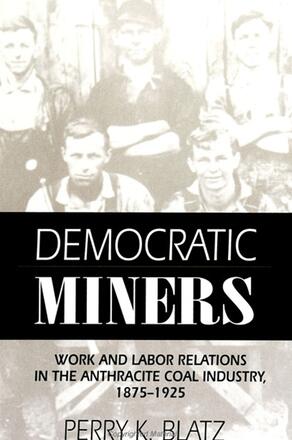
Democratic Miners
Work and Labor Relations in the Anthracite Coal Industry, 1875-1925
Alternative formats available from:
Description
Democratic Miners traces the history of work and labor relations in the anthracite coal industry, focusing on conditions that led up to, and followed, the famous strike of 1902. That strike, an epic five-and-a-half-month struggle, led the federal government to intervene in a labor dispute for the first time in American history. Focusing on the workplace, Blatz puts the 1902 strike in the context of a turbulent half-century of labor-management relations. Those years saw the unionization of the anthracite fields under the United Mine Workers of America, amidst an evolving democratic tradition of rank-and-file protest against corporate control, and ironically ended with a growing rift between miners and union leadership.
Unlike many books on labor relations, this work concentrates especially on the workers themselves. Working-class as opposed to union history, it contributes greatly to our understanding of working-class formation in the Progressive years.
Perry K. Blatz is Assistant Professor of History and Director of the graduate program in Archival, Museum, and Editing Studies at Duquesne University.
Reviews
"Perry K. Blatz has written a solid account of labor-management relations in the anthracite coal fields. It is a study that vividly displays the dynamic interrelationship between capital, labor, and the state on a regional basis. ...It is well-researched, well-written, and a much-needed study of an important period of American labor history. " —American Historical Review
"I heartily recommend this book, not just for those interested in learning more about the UMWA, or the anthracite coal industry, but for anyone who wants to know more about the sources of union growth in America. " — David Witwer, Lycoming College